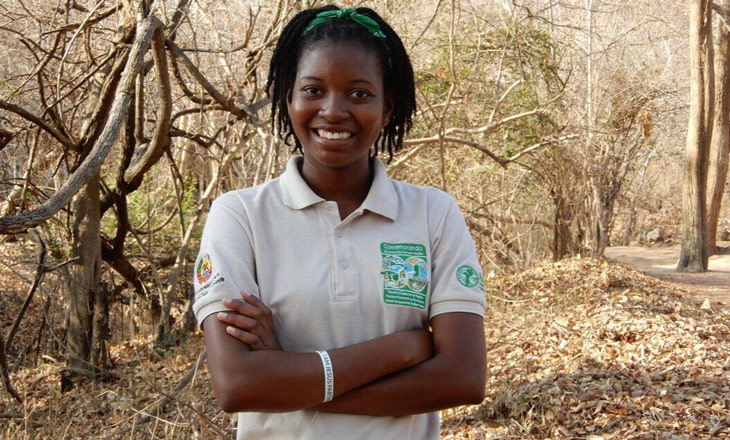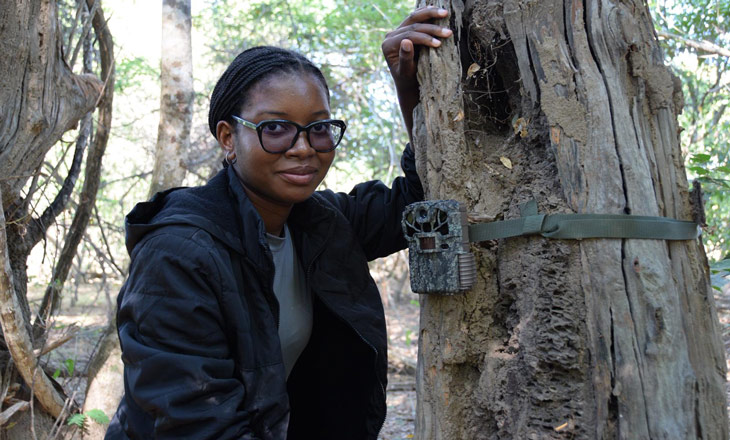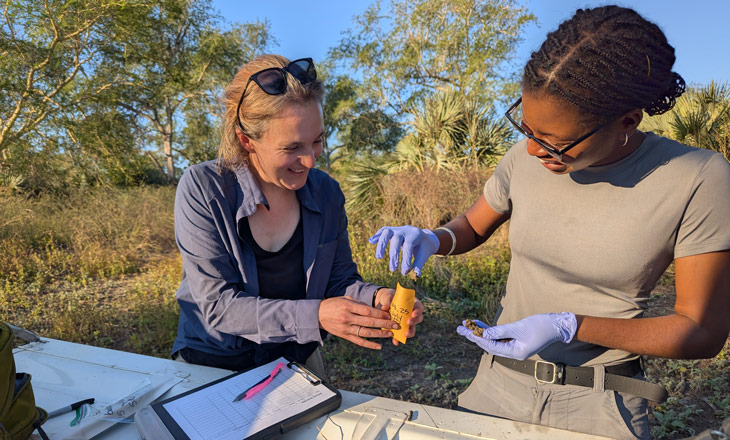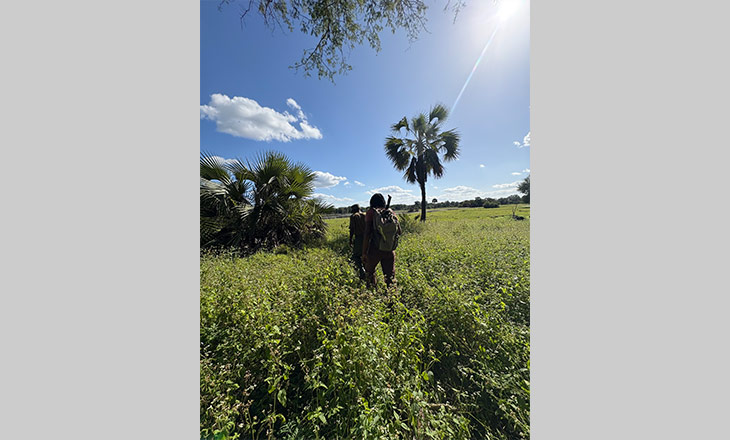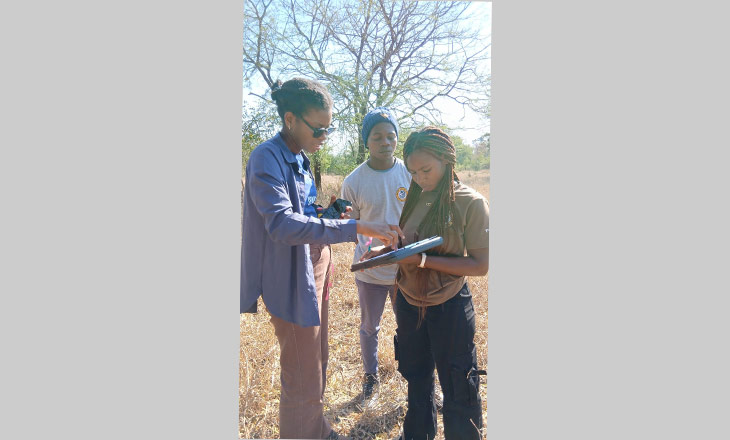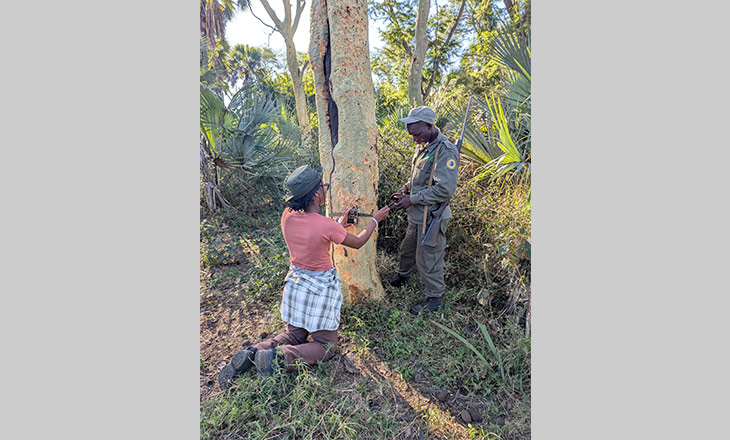When looking back on her journey, Sofia Nhalungo is categorical: “I have the privilege of currently working and feeling like a conservation biologist… and it’s all partly thanks to PLCM, which was the starting point of my career.” This statement sums up the impact of a program that transforms young graduates and mid-level technicians into professionals with a voice and a place in the most relevant conservation institutions in Mozambique.
Published at 21/11/2025
From ‘Spoiler’ to Game Changer: Sofia’s Journey with PLCM
In 2019, still searching for a real opportunity, Sofia received a message that sounded like a promise: “It was kind of a spoiler… soon we’ll launch applications, opportunities for internships. Go home, keep an eye on our platforms.” She didn’t yet know it would be called the Leadership Program for Conservation in Mozambique (PLCM), but she sensed it could be a turning point. She applied, was selected, and shortly after was placed at the National Administration of Conservation Areas (ANAC): theory turned into practice with clear direction.
At ANAC, it became clear this wouldn’t be a passive internship: “We were welcomed as workforce, not as those typical interns who just come to observe.” Sofia dove into the licensing of sport hunting and had the chance to be part of the pioneering group using the new digital system. “I had the opportunity to be among the first to use this electronic licensing system…” Modernization made the process faster and more reliable, and Sofia’s performance earned her an extension of the internship to twelve months. What began as something temporary became a solid foundation for the future.
Next, she went to Niassa, while she grew professionally and enrolled in a master’s degree also supported by PLCM, investigating the impact of sport hunting on impala behavior. “I found that sport hunting has an effect: in hunting areas, animals show more fear reactions to human presence… I measured this fear based on flight distance.” This pioneering research translates into useful data for management decisions. Sofia sums it up: “PLCM was the game changer for me in my professional career.”
The PLCM network and connections opened doors. Today, she is part of the Gorongosa National Park team, monitoring camera traps and deepening her connection to nature. “It’s a more dynamic job. I’m more connected with nature and will also have more opportunities to develop research…” The thread that began with the 2019 spoiler turned into a story of consolidated competence.
This effect multiplies: Sofia advises young applicants, answers questions, and inspires confidence. “It’s worth betting on PLCM… the most important thing is networking and showing your value.” The program is a springboard linking universities, conservation areas, and public and private entities, creating real opportunities for the first research, the first contract, and the first mentor. It’s also a structural mechanism: by training professionals and supporting institutions, PLCM directly strengthens the country’s capacity to protect ecosystems, manage species, and implement conservation policies.
And the numbers confirm it: between 2019 and 2025, PLCM funded research grants, integrated hundreds of young people into internships, and brought environmental education to tens of thousands of people. For 2025–2030, PLCM aims to scale up: create a National Conservation Academy, train 500 technicians, integrate at least 500 young people (40% women), energize 300 environmental clubs, and carry out at least 6 national communication campaigns.
Sofia’s story shows what PLCM represents: a spoiler turned into a career, an internship turned into public service, a scientific question turned into a management tool. For young people, the message is clear: apply, prepare, and show your value. For funders, the equation is simple: investing in PLCM means betting on concrete results in local talent inclusion, institutional effectiveness, and above all, the living protection of Mozambique’s biodiversity.
PLCM is a joint program of BIOFUND and ANAC. BIOFUND, as program leader, is responsible for mobilizing, training, and inspiring young people through scholarships, internships, and environmental citizenship programs. ANAC, as the national authority, ensures these young people are integrated into conservation areas, provides technical supervision, and transforms their contribution into real value management. This collaboration creates the program’s strength: a bond of trust that unites civil society and government, with direct impact on biodiversity conservation.
The program started in 2019 with exclusive funding from the World Bank and, since 2023, also with additional financial support from the Embassy of Sweden in Mozambique, through the Swedish International Development Cooperation Agency (SIDA).

